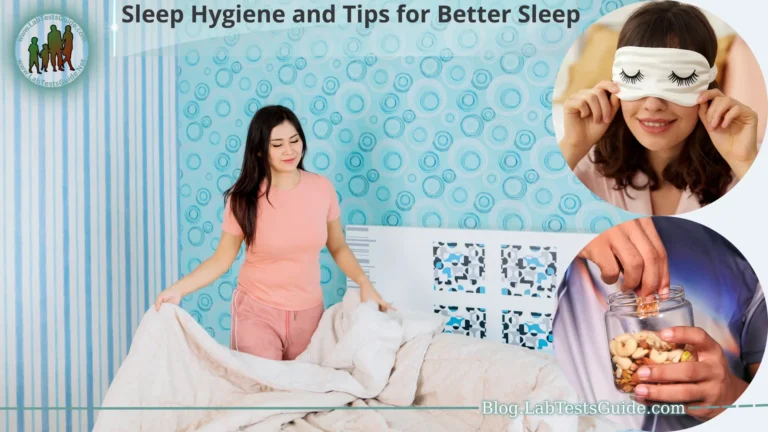Headaches are a common ailment experienced by many people, including girls. They can range from mild discomfort to debilitating pain, and they can significantly impact daily life and productivity. While headaches can have various causes, including medical conditions, hormonal changes, and lifestyle factors, there are several strategies you can employ to prevent and manage headaches effectively.

In this guide, we will explore tips specifically tailored for girls to help prevent and manage headaches. These tips address common triggers and provide practical solutions that can alleviate headache symptoms. However, it’s important to note that every individual is unique, and what works for one person may not work for another. It’s always recommended to consult with a healthcare professional for a proper diagnosis and personalized treatment plan.
By implementing the strategies outlined in this guide, you can empower yourself to take control of your headaches and improve your overall well-being.
Understanding Headaches:
Headaches are characterized by pain or discomfort in the head or neck region. They can vary in intensity, duration, and frequency. While the exact cause of headaches is not always clear, they are believed to be caused by a combination of factors, including.
Primary Headaches:
These are not associated with an underlying medical condition and are the most common type of headaches. Primary headaches include tension headaches, migraines, and cluster headaches.
- Tension Headaches: Tension headaches often present as a dull, aching pain that can affect both sides of the head. They are usually caused by muscle tension or stress and are commonly associated with factors like poor posture, eyestrain, or emotional stress.
- Migraines: Migraines are intense headaches often accompanied by additional symptoms such as nausea, vomiting, sensitivity to light and sound, and visual disturbances. They are believed to be caused by a combination of genetic, environmental, and hormonal factors.
- Cluster Headaches: Cluster headaches are relatively rare but extremely painful. They occur in clusters or patterns, with intense pain localized around one eye or temple. They often occur at the same time every day for several weeks or months and then go into remission.
Secondary Headaches:
These are caused by an underlying medical condition or other external factors. Some common causes of secondary headaches include sinus infections, head injuries, hormonal changes, medication side effects, and caffeine withdrawal.
Understanding the type of headache you are experiencing can help you identify appropriate prevention and management strategies. If you frequently experience severe or persistent headaches, it is essential to consult with a healthcare professional for an accurate diagnosis and appropriate treatment plan.
Common Causes of Headaches in Girls:
Here are some common factors that can contribute to headaches in girls:
- Hormonal Changes: Hormonal fluctuations during the menstrual cycle can trigger headaches in many girls and women. The drop in estrogen levels before menstruation or during menopause is often associated with migraines. Keeping track of your menstrual cycle and identifying patterns can help manage hormone-related headaches.
- Stress and Emotional Factors: Emotional stress, anxiety, and tension can lead to headaches. Girls may experience stress due to schoolwork, exams, peer pressure, or personal issues. Learning stress management techniques and finding healthy coping mechanisms, such as relaxation exercises or talking to a trusted adult or counselor, can help reduce stress-related headaches.
- Lack of Sleep or Irregular Sleep Patterns: Insufficient sleep or irregular sleep patterns can contribute to headaches in girls. Establishing a consistent sleep routine and ensuring an adequate amount of quality sleep each night is crucial for preventing sleep-related headaches.
- Dehydration: Dehydration is a common trigger for headaches. Girls, especially those involved in physical activities, may not consume enough water throughout the day, leading to dehydration headaches. It’s important to stay properly hydrated by drinking an adequate amount of water and fluids.
- Poor Diet and Skipping Meals: Unhealthy eating habits, such as skipping meals, consuming excessive caffeine or processed foods, or not getting enough nutrients, can trigger headaches. Maintaining a balanced diet and eating regular, nutritious meals can help prevent diet-related headaches.
- Sensory Stimuli: Certain sensory stimuli, such as bright lights, loud noises, strong smells, or flickering screens, can trigger headaches in some girls. Identifying and avoiding these triggers can help manage sensory-related headaches.
- Environmental Factors: Environmental factors, including changes in weather, high humidity, or exposure to certain allergens or pollutants, can contribute to headaches in girls. Taking appropriate measures, such as using air purifiers, managing allergies, or staying in a comfortable environment, can help reduce environmental triggers.
It’s important to note that each individual may have different triggers for headaches. Keeping a headache diary to track patterns and potential triggers can be helpful in identifying personal triggers and developing a targeted prevention plan.
Tips for Preventing Headaches:
Here are some tips specifically for girls to prevent headaches.
Maintain a Regular Sleep Schedule: Establish a consistent sleep routine by going to bed and waking up at the same time each day, including weekends. Aim for 7-8 hours of quality sleep each night to help prevent sleep-related headaches.
- Manage Stress Levels: Find effective ways to manage stress and practice relaxation techniques regularly. This can include deep breathing exercises, meditation, yoga, engaging in hobbies, spending time in nature, or seeking support from friends, family, or a counselor.
- Stay Hydrated: Drink an adequate amount of water throughout the day to stay hydrated. Dehydration can trigger headaches, so make sure to carry a water bottle with you and sip water frequently.
- Practice Healthy Eating Habits: Maintain a balanced diet and avoid skipping meals. Include plenty of fresh fruits, vegetables, whole grains, and lean proteins in your meals. Avoid excessive consumption of caffeine, processed foods, and sugary snacks, as they can contribute to headaches.
- Exercise Regularly: Engage in regular physical activity to reduce stress and promote overall well-being. Exercise helps release endorphins, which can help alleviate headache symptoms. Choose activities you enjoy, such as walking, jogging, swimming, dancing, or participating in team sports.
- Limit Caffeine Intake: While caffeine can provide temporary relief for some headaches, excessive consumption can actually trigger or worsen headaches. Limit your intake of caffeinated beverages like coffee, tea, soda, and energy drinks.
Remember, these tips are general recommendations, and it’s important to find what works best for you. If you experience frequent or severe headaches, consult with a healthcare professional for a comprehensive evaluation and personalized advice.
Tips for Managing Headaches:
Here are some tips for managing headaches.
- Identify Triggers: Keep a headache diary to identify patterns and potential triggers for your headaches. This can include foods, environmental factors, stressors, hormonal changes, or sleep patterns. By identifying your triggers, you can take steps to avoid or minimize their impact.
- Relaxation Techniques: Practice relaxation techniques to help alleviate headache symptoms. Deep breathing exercises, progressive muscle relaxation, guided imagery, and meditation can promote relaxation and reduce headache intensity.
- Apply Cold or Warm Compresses: Apply a cold or warm compress to the affected area. A cold compress can help numb the area and reduce inflammation, while a warm compress can help relax tense muscles. Experiment with both options to see which provides relief for your specific headache.
- Take Over-the-Counter Pain Relievers: Non-prescription pain relievers, such as acetaminophen, ibuprofen, or aspirin, can help alleviate mild to moderate headaches. Follow the recommended dosage instructions and consult a healthcare professional if you have any concerns or if the headaches persist.
- Try Natural Remedies: Some people find relief from headaches through natural remedies. These can include applying peppermint or lavender essential oil to the temples, drinking herbal teas like chamomile or ginger, or using herbal supplements such as butterbur or feverfew. However, it’s important to note that natural remedies may not work for everyone, and it’s best to consult with a healthcare professional before trying them.
- Seek Medical Advice: If headaches are frequent, severe, or significantly impacting your daily life, it’s important to seek medical advice. A healthcare professional can help diagnose the underlying cause of your headaches and provide appropriate treatment options. They may recommend prescription medications, lifestyle modifications, or alternative therapies based on your specific needs.
Remember, everyone’s experience with headaches is unique, and what works for one person may not work for another. It may take some trial and error to find the most effective management strategies for your headaches. Working closely with a healthcare professional can provide personalized guidance and support in managing your headaches effectively.
FAQs:
Are headaches more common in girls than boys?
Headaches are common in both girls and boys. However, certain types of headaches, such as migraines, tend to be more prevalent in girls and women.
Can hormonal changes affect headaches in girls?
Yes, hormonal changes, particularly during the menstrual cycle, can trigger headaches in many girls and women. The drop in estrogen levels before menstruation or during menopause is often associated with migraines.
How can I determine my headache triggers?
Keeping a headache diary can help you identify patterns and potential triggers for your headaches. Note down details about your diet, sleep patterns, stress levels, activities, and any other factors that may be associated with your headaches. Over time, you may start to notice patterns and identify specific triggers.
Are there any natural remedies for managing headaches?
Some people find relief from headaches through natural remedies such as applying essential oils (e.g., peppermint or lavender) to the temples, drinking herbal teas (e.g., chamomile or ginger), or using herbal supplements (e.g., butterbur or feverfew). However, it’s important to note that natural remedies may not work for everyone, and it’s best to consult with a healthcare professional before trying them.
When should I seek medical advice for my headaches?
You should consider seeking medical advice if you experience frequent or severe headaches that significantly impact your daily life, or if you notice any changes in your headache patterns or symptoms. A healthcare professional can help diagnose the underlying cause of your headaches and provide appropriate treatment options.
Can lifestyle changes alone prevent all headaches?
While adopting healthy lifestyle habits can help prevent many headaches, it may not eliminate all of them. Headaches can have various causes, including medical conditions, and some individuals may require additional medical interventions or treatments. It’s important to work with a healthcare professional to determine the best approach for your specific situation.
Remember, the information provided here is not a substitute for professional medical advice. If you have specific concerns about your headaches, it’s always best to consult with a healthcare professional for personalized guidance and support.
Conclusion:
Headaches can be a challenging issue to deal with, but by implementing preventive measures and adopting effective management strategies, you can significantly reduce their frequency and intensity. As a girl, it’s important to pay attention to potential triggers specific to your gender, such as hormonal changes and stressors associated with school and social life.
By maintaining a regular sleep schedule, managing stress levels, staying hydrated, practicing healthy eating habits, engaging in regular exercise, and limiting caffeine intake, you can minimize the occurrence of headaches. Additionally, identifying triggers, practicing relaxation techniques, using cold or warm compresses, taking over-the-counter pain relievers, trying natural remedies, and seeking medical advice when necessary are essential for effectively managing headaches.
Remember, every individual is unique, and it may take time to find the right combination of strategies that work for you. It’s important to consult with a healthcare professional if you experience frequent or severe headaches to receive a proper diagnosis and personalized treatment plan.
By taking control of your headaches and implementing these tips, you can improve your quality of life and enjoy a healthier, headache-free lifestyle.






